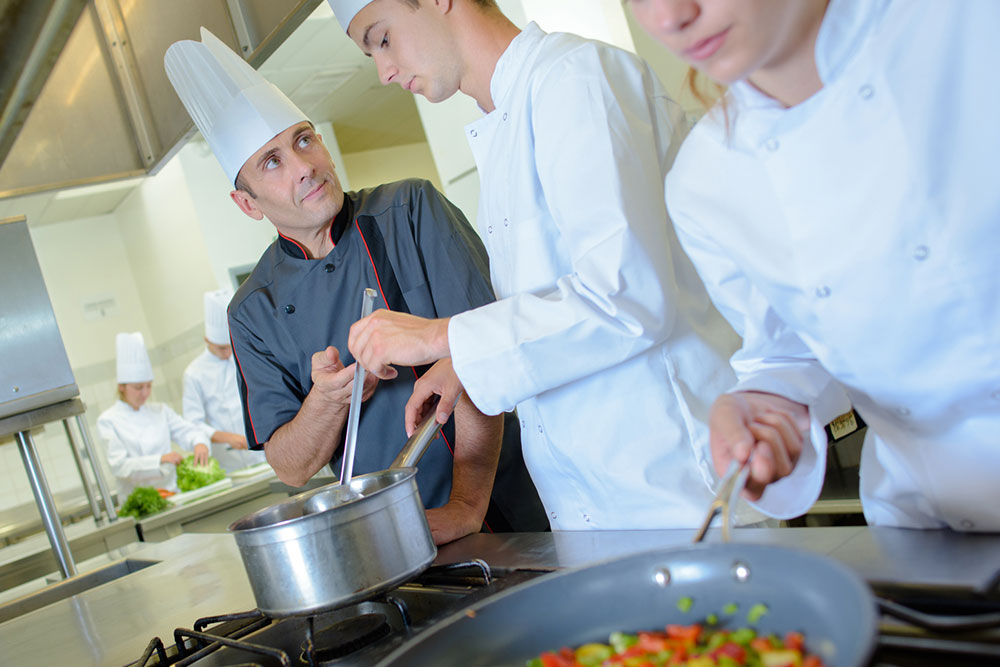Top Culinary Credential Programs and Training Courses to Explore
Explore the top culinary certifications and courses to advance your career. From foundational certifications like Certified Culinarian to specialized programs in plant-based cuisine, discover opportunities to enhance your skills and credentials. Learn about reputable institutions offering diverse culinary training options, suitable for all experience levels. Whether starting out or seeking specialization, these programs can help you achieve your culinary ambitions and open new professional doors.
Sponsored

Building a successful career in culinary arts requires acquiring the right skills and qualifications, which can be achieved through specialized training and certifications. These credentials enhance your professional profile and open doors to advanced opportunities. Numerous renowned institutions provide culinary programs tailored to various skill levels and interests. Selecting the right course depends on your career goals and experience. Whether you're starting out or looking to specialize, it's essential to choose programs that match your ambitions and expertise.
1. Certified Culinarian Credential
This foundational certification is essential for aspiring chefs, evidencing a fundamental grasp of food prep, safety, and sanitation standards. Offered by the American Culinary Federation (ACF), it is the premier professional chef credential in North America. Applicants typically need a high school diploma, GED, or 100 Continuing Education Hours (CEH), along with at least two years of culinary experience. Those with a Culinary Arts certificate or an Associate’s Degree may qualify with less experience. The program covers nutrition, safety, and supervisory skills. Certification costs approximately $250 for members and $500 for non-members.
2. Certified Foodservice Professional (CFSP)
Provided by the North American Association of Food Equipment Manufacturers (NAFEM), the CFSP credential recognizes expertise in food preparation and safety. Candidates must meet industry experience requirements and pass a final exam with at least 75%. NAFEM offers comprehensive study materials online to support exam preparation.
3. Personal Chef Certification
This credential suits those aiming to work as personal or private chefs. Offered by the United States Personal Chef Association (USPCA), candidates need at least two years of full-time experience, covering food prep, menu planning, purchasing, and safety. The American Culinary Federation (AFC) also offers a similar Personal Certified Chef program, requiring three years of experience, a relevant degree, and coursework in nutrition, safety, and business management.
Educational Courses
While certifications provide professional recognition, comprehensive courses offer in-depth knowledge of culinary techniques and science. These range from diplomas to degree programs, suitable for different skill levels. When researching courses, review eligibility and costs to find the best fit for your career goals.
1. Culinary Arts Degree
This popular program is designed for newcomers and seasoned professionals alike. Institutions such as the Culinary Institute of America (CIA) offer Associate’s degrees, while universities like Johnson & Wales provide Bachelor of Science programs. These courses cover cooking techniques, menu planning, and safety standards. Advanced options include Master’s degrees for those seeking further specialization.
2. Applied Food Studies Program
This degree delves into the broader food industry, including sourcing, marketing, and policy. The CIA offers an undergraduate program focused on food systems, providing students with a holistic understanding of the culinary field.
3. Applied Science in Culinary Arts
This course emphasizes various culinary styles, traditional and modern, exploring global cuisines. Offered as associate or bachelor’s degrees by colleges like St. Philip’s College and Seattle Central College, it prepares students for diverse culinary careers.
4. Plant-Based Culinary Arts Courses
With the rising popularity of plant-based diets, specialized programs are emerging. The Auguste Escoffier School offers diploma and foundation courses, while the Institute of Culinary Education (ICE) provides online certification programs, allowing flexible learning in plant-based cooking.






